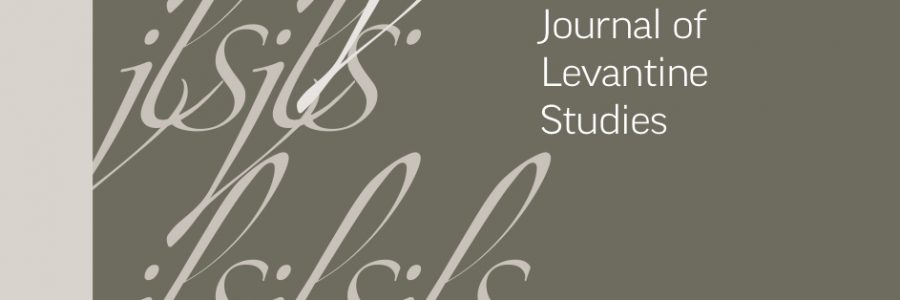-
Add to cartQuick view
Guest Editor’s Note: The Neoclassical Bias in Translation
Free!This is the first of two consecutive issues of JLS devoted to language and translation, specifically to the relationship between Arabic and Hebrew. In the current issue, we address the limits of the neoclassical model of translation, referring to the redefinition of translation in fifteenth-century Europe and infusing it with the spirit of the Renaissance. In a nutshell, the neoclassical model tends to individualize the translator’s identity, to privatize the spatial dimensions of translation, and to eliminate verbal dialogue.Furthermore, it dictates a forward-moving unidirectional formula of translation that usurps the original text and occupies its place; it silences any form of dialogue and replaces conversation and reciprocal dialogue with philology, linguistics, and hermeneutics. Under colonial conditions, the neoclassical model aggravates these limitations, since it reproduces in the translation room the very same asymmetry that typifies the exterior conditions and the power relations between languages. I begin this discussion by examining the emergence of the effects of the neoclassical model on translation in general, and in particular its predicament in relation to translation between Arabic and Hebrew – past, present, and future.
Add to cartQuick view -
Add to cartQuick view
Arabian Nights, Hebrew Nights: On the Influence of Alf laylah wa-laylah on Jewish Culture in Palestine/Israel
Free!This paper demonstrates how Jewish engagement with Arabic literature in Palestine/Israel provided an impetus for the Jewish cultural renaissance. By analyzing Yosef Yoel Rivlin’s Hebrew rendering of One Thousand and One Nights, it showcases how Arabic literature serviced Jewish nationalistic objectives by introducing the Arab other to a Jewish audience as the neighbor other and by enhancing a sense of attachment and belonging to the Oriental cultural world. Rivlin’s rendering of One Thousand and One Nights served as a prism through which his audience would view major issues that preoccupied the proponents of the emergent Jewish culture in Palestine/Israel. To reveal the nationalistic dimensions in Rivlin’s engagement with the Nights, this paper will approach the work as a window on discussion of the Jewish renaissance and return to the Orient, the Jewish self-conceptualization, the boundaries between the self and the other, the reconstruction of the Jewish past, and the enhancement of the modern Hebrew language and its literature.
Add to cartQuick view
- Home
- About JLS
- Issues
- Vol. 9 No. 1 | Summer 2019
- Vol 8 No 2 Winter 2018
- Vol. 8, No. 1: Summer 2018
- Vol. 7, No. 2: Winter 2017
- Vol. 7, 1: Summer 2017
- Vol. 6, Summer/Winter 2016
- Vol. 5, No. 2 Winter 2015
- Vol. 5, No. 1 Summer 2015
- Vol. 4, No. 2 Winter 2014
- Vol. 4, No. 1 Summer 2014
- Vol. 3, No. 2 Winter 2013
- Vol. 3, No. 1 Summer 2013
- Vol. 2, No. 2 Winter 2012
- Vol. 2, No. 1 Summer 2012
- Vol. 1, No. 2 Winter 2011
- Vol. 1, No. 1 Summer 2011
- Blog
- dock-uments
- Subscribe
- Submit
- Contact



